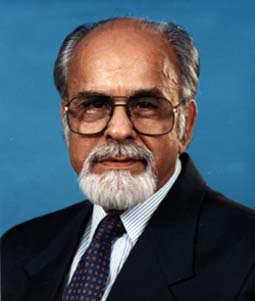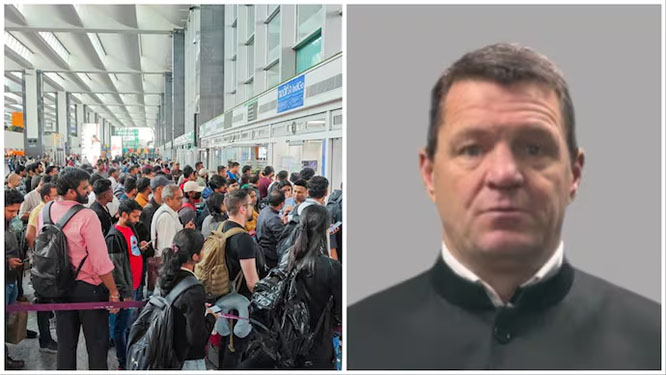
He may not have ever been a popular leader, often preferring a quiet corner in the rough tumble of Indian politics, but it was Gujral’s diplomacy and ability to keep friends across political borders that helped him stay afloat in various posts and elevated him to the Prime Minister of the nation.
Born on 4 December, 1919 in Jhelum , Pakistan to parents who were part of the freedom struggle, it was hardly a surprise that Gujral took to politics early in life. He had a rich education, and with teachers like the poet Faiz among his teachers, Gujral was inculcated with a love for Urdu language and poetry that lasted his lifetime.
Not surprisingly he took to student politics, and initially was a member of the communist party. Gujral also was president of the Lahore Students Union, and like his parents, went to jail during the freedom struggle when he backed the Quit India movement.
Like many families his also moved to Delhi during Partition. After a stint in the New Delhi Municipal Corporation as Vice Chairman, he caught the eye of Indira Gandhi and became a minister of state and held various portfolios between 1967 and 1976. He held positions like Communications and Parliamentary Affairs, Information and Broadcasting, Housing and Planning.
During the Emergency, the usually diplomatic Gujral had a run in with Sanjay Gandhi over the coverage of the Emergency by newspapers at the time, a move that cost him his post of the Information and Broadcasting ministry. However, he stayed on in the Congress, not leaving despite the slight.
In the 1980s, he chose to leave the Congress for the Janata Dal and in 1989 even won from the Jalandhar parliamentary seat to the Lok Sabha, and became the Minister of External Affairs in VP Singh’s government.
During his tenure he was sent to deal with the kidnappers of Rubaiya Sayeed, the daughter of the Union Home Affairs Mufti Mohammed Sayeed , which led to the release of five terror suspects for her safe return. He even had to represent India when Iraq invaded Kuwait in 1990 and his meeting with Iraqi dictator Saddam Hussein raised a few eyebrows.
When the United Front, a coalition of many regional parties including the Janata Dal, won the 1996 elections to come to power, Gujral found himself in familiar territory when he was made by the External Affairs Minister by HD Deve Gowda. However, a fall out between the Congress, which was supporting the government from outside at the time, resulted in Gujral becoming the 12th Prime Minister of India.
Not a man to leap into controversies and normally adept at dodging them by not doing anything, Gujral in his year long tenure managed to embroil his government in a few before he had to step down.
Janata Dal president and then Bihar Chief Minister Lalu Prasad Yadav faced allegations of siphoning off crores in the Fodder scam. Gujral and his government did nothing barring transfer the CBI director who had discovered the scam.
When MLAs in the Uttar Pradesh chose to throw mikes during a no-confidence vote against the BJP government in October 1997, Gujral’s government recommended President’s rule in the state, a recommendation that was instantly returned by the then president KR Narayanan and struck down by the state’s high court.
Gujral’s forte remained foreign affairs throughout his tenure and he even came up with the ‘Gujral Doctrine‘ on how India should deal with her neighbours,that reaped dividends for India.
And then in 1997 the axe fell when the United Front government refused to kick out the DMK from the alliance after the Jain Commission, which probed the assassination of former Prime Minister Rajiv Gandhi, found that the party had backed the now destroyed Sri Lankan insurgency group LTTE that had killed him. The Congress demanded the report be tabled and the DMK be shown the door, Gujral and the United Front refused and the rug was pulled out from under them by Congress president Sitaram Kesri.
After his tenure as Prime Minister, Gujral remained in politics but stayed on the sidelines, occasionally criticising the BJP government and opposing President’s rule in Bihar. He was even offered a Congress ticket by the party, but he preferred to stay on in the Janata Dal, choosing the propriety of not switching parties given he had served as a prime minister in the past.
However, he never stopped backing better relations between India and Pakistan . He backed it while he was Prime Minister and even when the BJP, who he never cared much for, made overtures to improve relations. An eloquent speaker and a man of words, Gujral recited poems to Pakistani diplomats he ran into and writing couplets in his spare time.
He gradually faded away from public life, preferring to be involved in other causes and shunning the public eye.







Comments
Add new comment